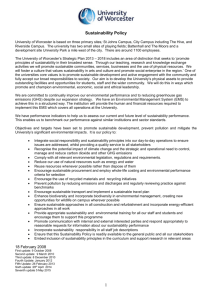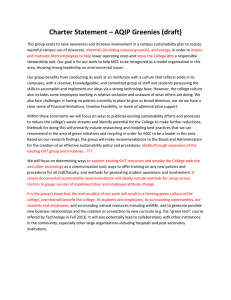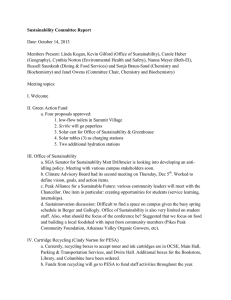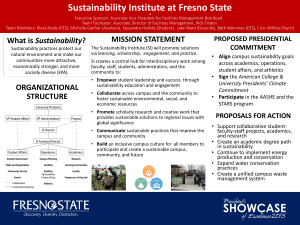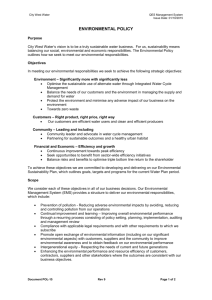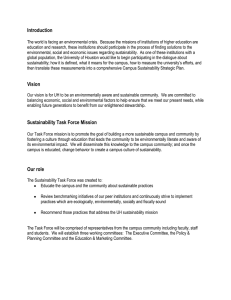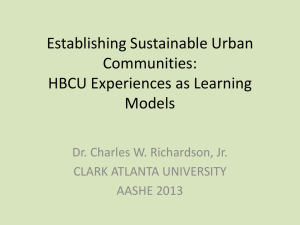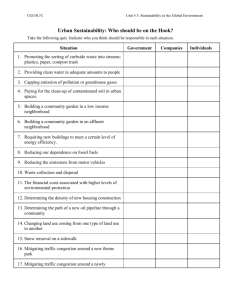Environmental Policy - University of Worcester
advertisement
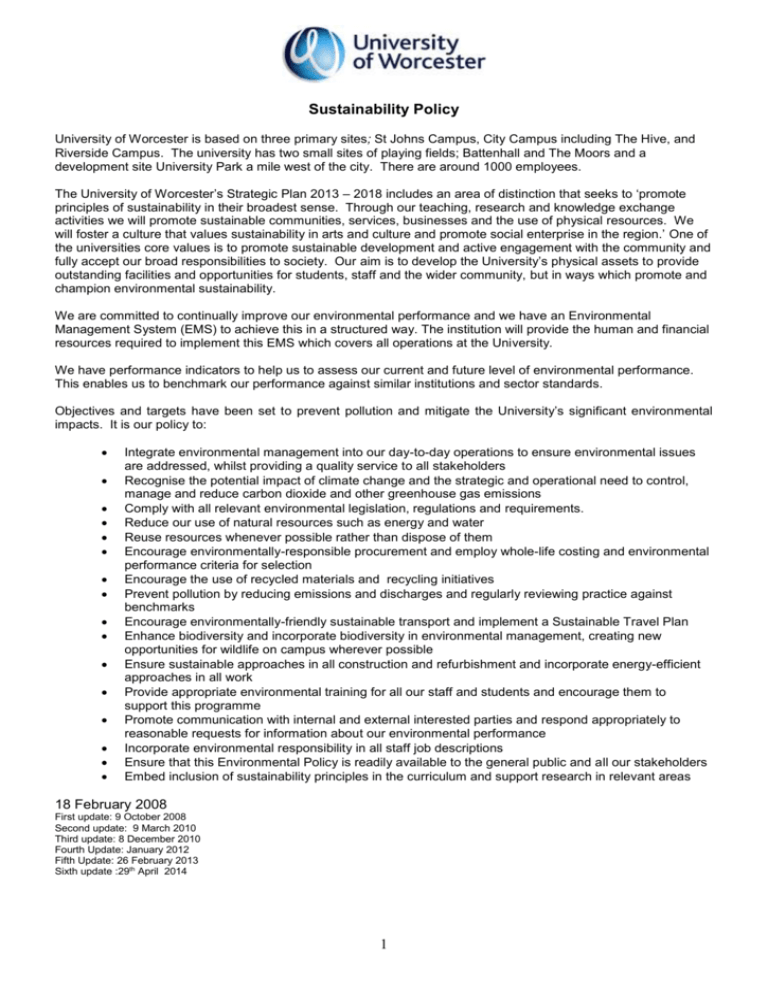
Sustainability Policy University of Worcester is based on three primary sites; St Johns Campus, City Campus including The Hive, and Riverside Campus. The university has two small sites of playing fields; Battenhall and The Moors and a development site University Park a mile west of the city. There are around 1000 employees. The University of Worcester’s Strategic Plan 2013 – 2018 includes an area of distinction that seeks to ‘promote principles of sustainability in their broadest sense. Through our teaching, research and knowledge exchange activities we will promote sustainable communities, services, businesses and the use of physical resources. We will foster a culture that values sustainability in arts and culture and promote social enterprise in the region.’ One of the universities core values is to promote sustainable development and active engagement with the community and fully accept our broad responsibilities to society. Our aim is to develop the University’s physical assets to provide outstanding facilities and opportunities for students, staff and the wider community, but in ways which promote and champion environmental sustainability. We are committed to continually improve our environmental performance and we have an Environmental Management System (EMS) to achieve this in a structured way. The institution will provide the human and financial resources required to implement this EMS which covers all operations at the University. We have performance indicators to help us to assess our current and future level of environmental performance. This enables us to benchmark our performance against similar institutions and sector standards. Objectives and targets have been set to prevent pollution and mitigate the University’s significant environmental impacts. It is our policy to: Integrate environmental management into our day-to-day operations to ensure environmental issues are addressed, whilst providing a quality service to all stakeholders Recognise the potential impact of climate change and the strategic and operational need to control, manage and reduce carbon dioxide and other greenhouse gas emissions Comply with all relevant environmental legislation, regulations and requirements. Reduce our use of natural resources such as energy and water Reuse resources whenever possible rather than dispose of them Encourage environmentally-responsible procurement and employ whole-life costing and environmental performance criteria for selection Encourage the use of recycled materials and recycling initiatives Prevent pollution by reducing emissions and discharges and regularly reviewing practice against benchmarks Encourage environmentally-friendly sustainable transport and implement a Sustainable Travel Plan Enhance biodiversity and incorporate biodiversity in environmental management, creating new opportunities for wildlife on campus wherever possible Ensure sustainable approaches in all construction and refurbishment and incorporate energy-efficient approaches in all work Provide appropriate environmental training for all our staff and students and encourage them to support this programme Promote communication with internal and external interested parties and respond appropriately to reasonable requests for information about our environmental performance Incorporate environmental responsibility in all staff job descriptions Ensure that this Environmental Policy is readily available to the general public and all our stakeholders Embed inclusion of sustainability principles in the curriculum and support research in relevant areas 18 February 2008 First update: 9 October 2008 Second update: 9 March 2010 Third update: 8 December 2010 Fourth Update: January 2012 Fifth Update: 26 February 2013 Sixth update :29th April 2014 1
